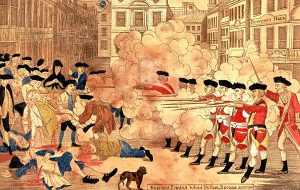LnRiLWltYWdlLnRiLWltYWdlLWZyYW1lLXNoYWRvdzEgZmlnY2FwdGlvbnttYXJnaW4tdG9wOjB9LnRiLWltYWdlIC50Yi1pbWFnZS1zaGFkb3ctMXtkaXNwbGF5OmlubGluZS1ibG9jaztwb3NpdGlvbjpyZWxhdGl2ZTt0cmFuc2l0aW9uOnRyYW5zZm9ybSAwLjI1cyBlYXNlfS50Yi1pbWFnZSAudGItaW1hZ2Utc2hhZG93LTEtc2hhZG93cy1jb250YWluZXJ7cG9zaXRpb246cmVsYXRpdmV9LnRiLWltYWdlIC50Yi1pbWFnZS1zaGFkb3ctMS1pbm5lcntvdmVyZmxvdzpoaWRkZW47cG9zaXRpb246cmVsYXRpdmU7ei1pbmRleDoyO2JhY2tncm91bmQtY29sb3I6I2ZmZn0udGItaW1hZ2UgLnRiLWltYWdlLXNoYWRvdy0xLWlubmVyIGltZ3tkaXNwbGF5OmJsb2NrO3dpZHRoOjEwMCV9LnRiLWltYWdlIC50Yi1pbWFnZS1zaGFkb3ctMS1zaGFkb3ctMSwudGItaW1hZ2UgLnRiLWltYWdlLXNoYWRvdy0xLXNoYWRvdy0ye3Bvc2l0aW9uOmFic29sdXRlO3otaW5kZXg6MTtib3R0b206MTVweDtsZWZ0OjEwcHg7d2lkdGg6NTAlO3RvcDo4MCU7bWF4LXdpZHRoOjMwMHB4O2JhY2tncm91bmQ6Izc3Nztib3gtc2hhZG93OjAgMTVweCAxMHB4ICM3Nzc7dHJhbnNmb3JtOnJvdGF0ZSgtM2RlZyl9LnRiLWltYWdlIC50Yi1pbWFnZS1zaGFkb3ctMS1zaGFkb3ctMnt0cmFuc2Zvcm06cm90YXRlKDNkZWcpO3JpZ2h0OjEwcHg7bGVmdDphdXRvfQ==
LnRiLWltYWdle3Bvc2l0aW9uOnJlbGF0aXZlO3RyYW5zaXRpb246dHJhbnNmb3JtIDAuMjVzIGVhc2V9LndwLWJsb2NrLWltYWdlIC50Yi1pbWFnZS5hbGlnbmNlbnRlcnttYXJnaW4tbGVmdDphdXRvO21hcmdpbi1yaWdodDphdXRvfS50Yi1pbWFnZSBpbWd7bWF4LXdpZHRoOjEwMCU7aGVpZ2h0OmF1dG87d2lkdGg6YXV0bzt0cmFuc2l0aW9uOnRyYW5zZm9ybSAwLjI1cyBlYXNlfS50Yi1pbWFnZSAudGItaW1hZ2UtY2FwdGlvbi1maXQtdG8taW1hZ2V7ZGlzcGxheTp0YWJsZX0udGItaW1hZ2UgLnRiLWltYWdlLWNhcHRpb24tZml0LXRvLWltYWdlIC50Yi1pbWFnZS1jYXB0aW9ue2Rpc3BsYXk6dGFibGUtY2FwdGlvbjtjYXB0aW9uLXNpZGU6Ym90dG9tfSAud3AtYmxvY2staW1hZ2UudGItaW1hZ2VbZGF0YS10b29sc2V0LWJsb2Nrcy1pbWFnZT0iNTk4YTE5MDEzNTQwMzQyMTE1ODQ4NDFhNWJjNTY4OGQiXSB7IG1heC13aWR0aDogMTAwJTsgfSAud3AtYmxvY2staW1hZ2UudGItaW1hZ2VbZGF0YS10b29sc2V0LWJsb2Nrcy1pbWFnZT0iNTk4YTE5MDEzNTQwMzQyMTE1ODQ4NDFhNWJjNTY4OGQiXSAudGItaW1hZ2Utc2hhZG93LTEtaW5uZXIgeyBib3JkZXI6IDBweCBzb2xpZCByZ2JhKCAwLCAwLCAwLCAwLjI1ICk7Ym9yZGVyLXJhZGl1czogMDsgfSBAbWVkaWEgb25seSBzY3JlZW4gYW5kIChtYXgtd2lkdGg6IDc4MXB4KSB7IC50Yi1pbWFnZXtwb3NpdGlvbjpyZWxhdGl2ZTt0cmFuc2l0aW9uOnRyYW5zZm9ybSAwLjI1cyBlYXNlfS53cC1ibG9jay1pbWFnZSAudGItaW1hZ2UuYWxpZ25jZW50ZXJ7bWFyZ2luLWxlZnQ6YXV0bzttYXJnaW4tcmlnaHQ6YXV0b30udGItaW1hZ2UgaW1ne21heC13aWR0aDoxMDAlO2hlaWdodDphdXRvO3dpZHRoOmF1dG87dHJhbnNpdGlvbjp0cmFuc2Zvcm0gMC4yNXMgZWFzZX0udGItaW1hZ2UgLnRiLWltYWdlLWNhcHRpb24tZml0LXRvLWltYWdle2Rpc3BsYXk6dGFibGV9LnRiLWltYWdlIC50Yi1pbWFnZS1jYXB0aW9uLWZpdC10by1pbWFnZSAudGItaW1hZ2UtY2FwdGlvbntkaXNwbGF5OnRhYmxlLWNhcHRpb247Y2FwdGlvbi1zaWRlOmJvdHRvbX0gfSBAbWVkaWEgb25seSBzY3JlZW4gYW5kIChtYXgtd2lkdGg6IDU5OXB4KSB7IC50Yi1pbWFnZXtwb3NpdGlvbjpyZWxhdGl2ZTt0cmFuc2l0aW9uOnRyYW5zZm9ybSAwLjI1cyBlYXNlfS53cC1ibG9jay1pbWFnZSAudGItaW1hZ2UuYWxpZ25jZW50ZXJ7bWFyZ2luLWxlZnQ6YXV0bzttYXJnaW4tcmlnaHQ6YXV0b30udGItaW1hZ2UgaW1ne21heC13aWR0aDoxMDAlO2hlaWdodDphdXRvO3dpZHRoOmF1dG87dHJhbnNpdGlvbjp0cmFuc2Zvcm0gMC4yNXMgZWFzZX0udGItaW1hZ2UgLnRiLWltYWdlLWNhcHRpb24tZml0LXRvLWltYWdle2Rpc3BsYXk6dGFibGV9LnRiLWltYWdlIC50Yi1pbWFnZS1jYXB0aW9uLWZpdC10by1pbWFnZSAudGItaW1hZ2UtY2FwdGlvbntkaXNwbGF5OnRhYmxlLWNhcHRpb247Y2FwdGlvbi1zaWRlOmJvdHRvbX0gfSA=
Little is known about the Boston Massacre of 1768 by the majority of American history students. Yes, we learn that Redcoats shot Boston citizens and that there was return fire, but to this day, no one knows who fired first. However, most students don’t learn the Christian principle that settled the matter. True, the British government had given orders to the soldiers in the colonies to collect severe taxes, to enforce the laws of England, and the wishes of the King. It is no secret that these British soldiers were hated, even though most of them were probably just carrying out orders as good soldiers do.
Some background on the Boston Massacre gives better perspective. In response to the famous Boston Tea Party, the British enacted a Port Bill designed to starve Boston of its commerce and thereby force the colonists to repent, pay the tax, and submit to British enforcement. When tensions rose over the blockade, shots were fired in King Street, and eight British soldiers were in jail for murder. However, if no one knew the origin of the shots, and if shots were fired both ways, who was truly guilty? These were the thoughts of John Adams, then an attorney in Boston, who agreed to defend the British soldiers. Yes, he would defend them and angry Bostonians wanted to know why.
Here is a great testament to our system of justice, founded upon the biblical principles of the equal position of man before Almighty God. Adams told the people of Boston that if they intended, in their new country, to adopt the principle that a man was innocent until proven guilty, rather than by a single King’s decree they so despised, then they were bound to show the world that their system was the better. He also cleverly read from Britain’s own law that stated, better it be that all those on trial be acquitted though guilty than one innocent person be wrongly convicted. How could a Christian community think otherwise, he argued? Adams secured a verdict of 6 innocent and 2 on involuntary manslaughter from the jury by proving that there was insufficient evidence of their lone guilt. The soldiers were freed and a new respect for law and order restored the peace in Boston.



